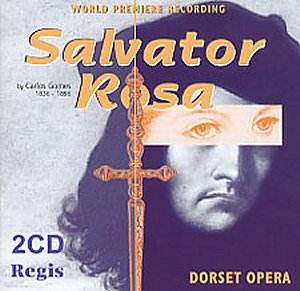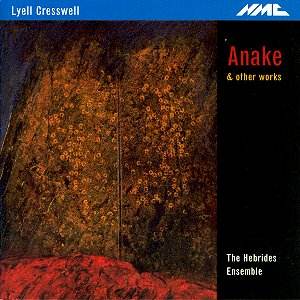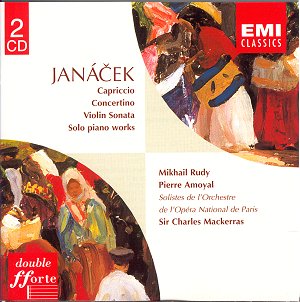 Composer: Carlos Gomes
Composer: Carlos Gomes
Works: Salvator Rosa
Performers: Isabella – Lisa Livingston (soprano), Salvator Rosa – Fernando del Valle (tenor), Gennariello – Andrea Baker (mezzo soprano), Masaniello – Michael Gluecksmann (baritone), Il Conte de Badajoz – Christopher Lemmings (tenor), Duca d’Arcos – Michail Milanov (bass), Fernandez – David Curry (tenor), Corcelli – Jürgen Frantz (bass), Fra Lorenzo – Martin King (bass), Bianca – Caroline Dowd-Higgins (soprano), Dorset Opera Chorus, Dorset Opera Orchestra, Patrick Shelley (conductor)
Recording: Recorded on 11th and 12th August 2000
Label: REGIS Forum FRC 9201 [2CDs: 142.07]
Carlos Gomes, a significant figure in the 19th-century operatic landscape, is often overshadowed by his contemporaries, yet his work “Salvator Rosa” reveals a composer deeply influenced by Italian operatic traditions alongside a distinctive Brazilian flair. Premiering in 1874, “Salvator Rosa” showcases Gomes’s ability to weave a narrative rich in both patriotic fervor and romantic entanglements, drawing from the life of the painter and satirist of the same name. The opera captures the essence of its time, reflecting the socio-political tensions of Italy through the lens of a Brazilian composer educated in Italy, thus creating a unique cultural synthesis.
The recording from Dorset Opera presents a robust interpretation of Gomes’s score, conducted by Patrick Shelley, who navigates the complexities of the orchestration with both finesse and enthusiasm. The orchestra, primarily comprised of players from the Bournemouth Symphony Orchestra, delivers a spirited performance, although there are moments where balance falters, particularly in the choral sections. The orchestral sound is generally warm and inviting, yet at times the ensemble lacks the cohesion needed in ensemble passages, leading to an unevenness that distracts from the overall impact. This is particularly evident during the climactic second act finale, which, while ambitious, occasionally suffers from rough edges in ensemble and balance.
The vocal performances are of mixed quality, presenting both thrilling moments and occasional disappointments. Lisa Livingston’s Isabella stands out with her dramatic presence and vocal prowess, particularly in the Act II top C, which is both effortless and powerful. Her ability to traverse the emotional landscape of her character adds depth to the performance. Conversely, Fernando del Valle’s portrayal of Salvator Rosa presents challenges; while he offers moments of lyrical beauty, his tenor often feels strained, particularly at the higher register. This inconsistency, coupled with moments where he appears to struggle for pitch, detracts from the character’s commanding presence.
Andrea Baker’s Gennariello is a highlight, her mezzo-soprano voice delivering a punchy directness that invigorates her scenes, particularly in the serenade of Act IV. Michael Gluecksmann’s Masaniello, while possessing a rich baritone timbre, sometimes resorts to barking on sustained high notes, which undermines the character’s emotional intensity. The bass roles are solidly filled, with Michail Milanov’s imposing presence as Il Conte de Badajoz adding gravitas, despite the mislabeling of his voice type in the booklet.
The recording quality, while capturing the live essence of the performance, suffers from some technical flaws, particularly in vocal balance and clarity. The absence of applause may leave a sterile impression, yet the inclusion of some audience reactions, such as foot-stamping during the rustic Tarantella, provides a glimpse into the live experience. The engineering, while clear, does not fully compensate for the occasionally woolly chorus sound, which lacks the precision needed to elevate the overall impact of the opera.
“Salvator Rosa” emerges as a fascinating exploration of Gomes’s compositional voice, with moments of genuine brilliance tempered by uneven execution. The recording, despite its shortcomings, serves an important role in reintroducing Gomes to contemporary audiences, illustrating both the charm and challenges of late 19th-century operatic practice. The enterprise of Dorset Opera in staging and recording this work must be lauded, as it enriches the operatic repertoire and invites further exploration of Gomes’s contributions to the genre. The effort to revive a neglected operatic gem is commendable, even if the execution occasionally falters. The experience ultimately rewards those willing to delve into this lesser-known corner of the operatic canon.



